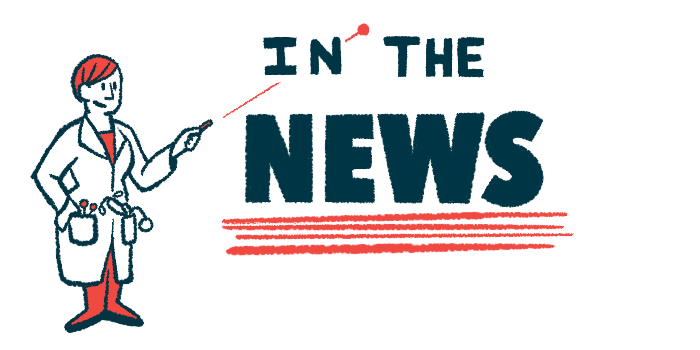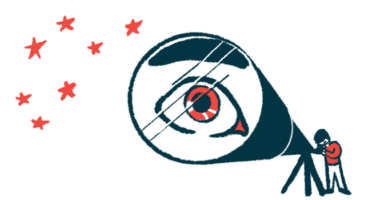FDA approves Vyjuvek gene therapy gel for DEB patients 6 months and up
Vyjuvek becomes first re-dosable and only treatment approved for DEB in US

The U.S. Food and Drug Administration (FDA) has approved Vyjuvek (beremagene geperpavec), Krystal Biotech’s gene therapy gel, for treating skin wounds in patients 6 months and older with dystrophic epidermolysis bullosa (DEB).
Vyjuvek becomes the first re-dosable gene therapy approved by the FDA, and the only medicine approved for DEB. It can be administered by a healthcare professional in a clinic or at home without specialized expertise.
“Today’s landmark approval of VYJUVEK as the first redosable gene therapy ushers in a whole new paradigm to treat genetic diseases and is an important milestone for patients affected by DEB as well as their families and caregivers,” Krish S. Krishnan, chairman and CEO at Krystal, said in a company presss release. “We offer our sincere gratitude to DEB patients, caregivers, investigators, US regulators, and our employees who made this approval possible.”
Krystal expects Vyjuvek to be available in the U.S. in the third quarter of this year, although promotion will start immediately. Through Krystal Connect, a personalized support program, the company offers patients, and their caregivers and relatives information about Vyjuvek, and a way to verify health benefits, support treatment planning, and provide details about financial assistance. More information can be found by calling 1-844-5-KRYSTAL (5797825).
Nonprofit debra of America will help ensure patients have access to Vyjuvek
“With the FDA approval of VYJUVEK, the DEB population has reached a monumental milestone in the treatment of this horrible disorder,” said Brett Kopelan, executive director of debra of America. “People living with DEB will now have a significant chance of having an improved quality of life and debra will continue to work closely with Krystal to assure patients have ready access to VYJUVEK.”
Vyjuvek is to be given to patients with mutations in the COL7A1 gene, the cause of DEB. The maximum weekly dose is 1.6x10E9 in children ages 6 months to less than 3 years, and 3.2x10E9 in older patients. The treatment is applied to selected wounds in droplets spaced evenly.
The FDA’s decision comes nearly one year after Krystal initially filed the regulatory application and about nine months after the agency granted it priority review. Early this year, the FDA delayed by three months its review deadline, initially set for mid-February, due to a change in Vyjuvek’s manufacturing process that had to be appropriately analyzed by the agency.
With the approval, Krystal received a rare pediatric disease priority review voucher, which can be used for faster review of a subsequent application of another treatment, or be transferred to another company.
Vyjuvek received orphan drug, fast-track, and rare pediatric designations, as well as regenerative medicine advanced therapy status for DEB. These statuses were meant to speed its clinical development and regulatory review.
In Europe, where the therapy was granted orphan drug and priority medicine designations, Krystal anticipates starting a Marketing Authorization Application in the second half of the year, with a potential approval in 2024. The company is also working toward launching the gene therapy in Japan in 2025.
DEB is one of the main types of epidermolysis bullosa, a group of rare disorders characterized by very fragile skin that tears and blisters easily.
People with DEB develop blisters that often leave scars after healing or that progress to severely painful open wounds. COL7A1, the mutated gene in people with DEB, provides instructions to produce a portion of a protein that helps hold skin layers together, called type VII collagen (COL7).
Formerly known as B-VEC, Vyjuvek is a re-dosable gene therapy gel that uses a modified and harmless herpes simplex virus to deliver two healthy copies of the COL7A1 gene directly to skin wounds.
As such, the therapy is expected to increase the levels of a working COL7 protein, ultimately helping to promote wound healing and prevent further skin blistering.
Until now, doctors and nurses had no way to stop blisters and wounds from developing on dystrophic EB patient skin and all we could do was to give them bandages and helplessly watch as new blisters formed. VYJUVEK topical gene therapy changes all of this.
FDA approval of Vyjuvek based on positive data from two clinical trials
Vyjuvek’s approval was based on positive data from two trials — the Phase 1/2 GEM-1 trial (NCT03536143) and the Phase 3 GEM-3 study (NCT04491604) — that involved children and adults with DEB.
Most participants had a severe form of the disease, called recessive DEB, in which patients carry mutations in both COL7A1 gene copies.
Both studies tested Vyjuvek against a placebo gel in matched wounds of each patient. GEM-1 participants applied the gels most commonly every two or three days to match bandage changes, for up to three months, while those in the GEM-3 study applied the gels once a week for up to six months.
GEM-1’s results showed that Vyjuvek successfully treated all but one chronic, 5-year-old wound and that treated wounds remained healed for at least three months. This contrasted with the variable rates of healing and re-blistering observed in wounds given the placebo gel.
In the GEM-3 trial, the gene therapy gel was associated with a significantly higher proportion of completely healed wounds relative to a placebo gel at both three months (71% vs. 20%) and six months (67% vs. 22%).
“Until now, doctors and nurses had no way to stop blisters and wounds from developing on dystrophic EB patient skin and all we could do was to give them bandages and helplessly watch as new blisters formed. VYJUVEK topical gene therapy changes all of this,” said M. Peter Marinkovich, MD, primary investigator of the GEM-3 study from Stanford Medicine.
“VYJUVEK both heals patient wounds and prevents skin from re-blistering because it actually corrects the underlying skin defect of dystrophic EB. Because it’s safe and easy to apply directly to wounds, it doesn’t require a lot of supporting technology or specialized expertise, making VYJUVEK highly accessible even to patients who live far away from specialized centers,” he added.
Vyjuvek being evaluated in long-term extension study in up to 45 patients
Vyjuvek was generally safe and well-tolerated in both studies, with no reports of serious adverse events related to treatment.
An open-label extension study (NCT04917874) is evaluating Vyjuvek’s long-term safety in up to 45 DEB patients, 2 months and older. Patients who completed the GEM-3 study and those who meet all inclusion criteria but were not able to participate in the Phase 3 trial are being invited to enroll in the extension study.
The trial is expected to end by year’s end.
“Today’s action demonstrates the FDA’s ongoing commitment to supporting the development and evaluation of new treatments that address unmet needs for rare diseases or conditions,” Peter Marks, MD, PhD, director of the FDA’s Center for Biologics Evaluation and Research, said in an FDA press release.







